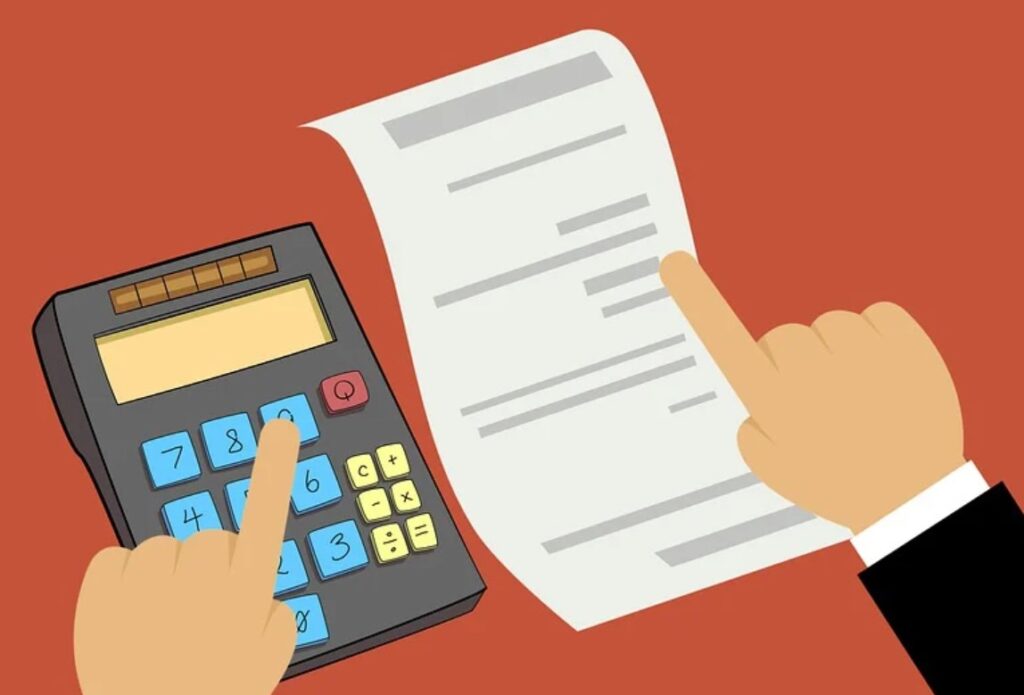Few of us enjoy discussing money. Even among family members and close friends, it’s considered disrespectful to bring up the issue. It turns out that our tidied-up approach to money isn’t doing us any favors.
Many individuals feel that if they only had more money, all of their problems would go away and they would be able to be happy. In certain circumstances, earning more money is the best way to improve your financial situation or deal with adversity.
Surprisingly, you might be nervous about your financial condition no matter how much money you make.
Having extra money can sometimes lead to an increase in your lifestyle that does not alleviate stress or provide you better long-term enjoyment.
Here are some ideas for dealing with money stress and regaining control of your money.
What Factors Contribute to Financial Stress?

Stress is just your body’s reaction to a scenario or sequence of events. Consider a stressful event, such as a ringing fire alarm at your workplace or seeing a storm barreling toward your community.
Some people will hyperventilate, while others will remain calm and in control. The scenario is the same for everyone, yet how each person perceives it varies greatly.
Money stress may be caused by a number of frequent stresses. Understanding and avoiding them is the key to doing more while feeling less anxious.
1. Create a Budget and Track Your Expenses

Financial stress is frequently generated, at a basic level, by a gap between the money you spend and the money that comes in. You may be delaying building a budget and monitoring costs because you’re afraid of what you’ll discover about your expenditures, but making a budget is the most critical step toward making adjustments that better your finances and decrease money-related stress.
Create a budget based on your monthly earnings. Then, use an expenditure tracker or similar money management tool to track your performance. You’ll understand your spending patterns and discover new strategies to save money. Depending on what you learn, these insights may cause you to have further concerns, but the knowledge you receive will put you in a position to make important adjustments.
2. Seek the Advice of a Financial Advisor

At times, financial troubles may appear to be too large to handle on your own. If you’ve attempted the above procedures and still haven’t made the necessary progress to reduce your financial stress, it may be time to seek the assistance of a financial specialist who can help you establish a strategy.
When determining a manageable manner to address the causes of your economic stress, a financial advisor will go over your various challenges and needs, taking your income into account. This might also be an excellent opportunity to develop new money management skills that will serve you well in the future.
3. Create Extra Revenue Streams

When you’re living hand to mouth or falling backward financially, it might be challenging to achieve your goals. To break the pattern, consider strategies to increase your income, such as seeking a higher-paying job, taking on a side hustle, starting your own company, or doing a side gig.
Having many sources of income is similar to having an insurance plan. It not only helps you pay your expenses and get out of debt faster, but it also helps you keep security if one of them fails.
How can you use the abilities you already have in your career to start a lucrative side project or investment? What hobbies or interests do you have that others would pay for, such as art, sports, or design?
4. Maintain Financial Transparency

If you put off opening bills because you don’t want to face them, you’re not reducing your financial stress. To ensure you never miss deadlines, open all mail immediately and establish a current or future settlement date for all invoices.
Keep note of how much you spend, including any house emergency funds you will require for repairing your pex piping, how much you save, and whether your monthly budget needs to be adjusted. Use desktop applications like Quicken or mobile apps like Mint or Personal Capital.
5. Ask for a credit repair
Credit repair is a process that allows you to fix errors in your credit history. It can also help you to dispute inaccurate or unauthorized accounts, collections, and other reported information. Credit repair for veterans is not something that should be taken lightly, as it can have long-lasting effects on your current and future financial health and stability.
Review Your Credit Reports – Start by requesting a copy of your credit report from each of the three major credit bureaus, Experian, TransUnion, and Equifax. Carefully review each report for errors or inconsistencies in the information provided.
Research Creditor Responsibilities – It is important to understand how creditors are required to report information to credit reporting agencies so that you can identify any potential reporting errors or inconsistencies in the data they provide.
Send out Dispute Letters – Send out copies of each dispute letter with supporting documentation if needed, such as pay stubs or bank statements showing discrepancies in payment amounts when compared with what is stated on your credit report(s). Be sure to make copies for yourself before sending out any documents! Also, make sure you have sufficient postage before mailing each letter as well so it will arrive safely at its destination address(es). Additionally, consider sending the letters via certified mail so there is a paper trail showing proof of delivery from the sender (you)to the recipient (credit bureau/creditor).
6. Take a Break

You’ll probably feel more in control when you’ve done activities like focusing on the positive, lowering costs, automating saves, and exploring other income sources. However, as previously said, you may never be able to eliminate all financial worry.
If you start to worry about money, do something beneficial to distract yourself from your worries. It may be dancing with your dog or children, going for a run, engaging in a hobby, listening to music, watching a movie, or doing yoga.
7. Avoid Social Media

Social media, in particular, serves as a channel for boastful conduct. Your buddies definitely don’t want to boast, but if you’re preparing Ramen noodles again for the fourth time in a row while a former classmate is gallivanting throughout Europe on Instagram and Facebook, you’re likely to wonder what you’ve been doing wrong.
First, take a step back. Then keep in mind that you have no idea what’s going on in their savings account or on their credit cards. Also, because everyone likes good publicity, individuals prefer to post the best sides of themselves online. You have no idea what else is happening in their life, better or worse.
Concentrate on yourself and the new commitment to keep your financial – and stress – affairs in order. You’re on a road of power and assurance. Take charge of it. If you can not do that, take a break from your social networks.
Conclusion
Personal money uncertainties may often generate more stress than the actual financial challenges you face.
Taking measures to comprehend your fiscal situation may help replace financial worry with confidence and determination.

